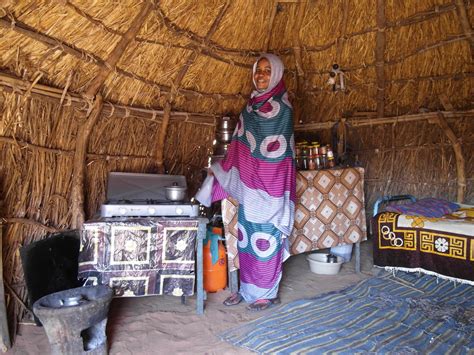
Sudan Cookstoves
Today’s post has a very special place in the Terra Neutra team’s heart. When we launched the company nearly a year ago, our first - and then only - carbon offsetting project was the award-winning Low Smoke Cookstove project in Darfur, Sudan.

We chose the Cookstove project for our launch project for a couple of reasons;
It’s the first registered carbon credit project in Sudan and the first to be developed in a conflict zone.
The project provides multiple benefits, supporting 4 of the UN Sustainable Development goals;
SDG 3: Ensure healthy lives and promote well-being for all.
SDG 5: Achieve gender equality and empower women and girls
SDG 7: Ensure access to affordable, reliable, sustainable and modern energy
SDG13: Take urgent action to combat climate change
And it even won an award! Best Carbon Offsetting Project in the Environmental Finance 10th Annual Voluntary Carbon Market Awards.
Each stove installed in a household in Darfur saves 4.5 tCO₂e – equivalent to one passenger flying 3 times between London and New York and to date over 6,000 stoves have been installed in people’s homes.
The aim of the Cookstove project is to replace traditional cooking methods – burning wood and charcoal inside the home – with low smoke stoves, powered by Liquid Paraffin Gas (LPG).
The cookstoves make a huge difference to the health of the homes in which they are installed. Traditionally, women cook on open fires inside their homes.
Cooking this way is basically like having a charcoal BBQ inside your house. It releases large amounts of particulates, carbon monoxide and other pollutants, creating huge health issues.
According to the World Health Organisation, each year 4.3 MILLION people die from cooking-related indoor air pollution-caused illness — more than deaths from malaria, HIV/AIDS and tuberculosis combined.
The Global Alliance for Clean Cookstoves states that cooking with efficient low smoke LPG reduces most key pollutants by over 95%. Almost 100% of families using the new cookstoves say that indoor air quality has greatly improved.
One of the other key benefits of the project is combating deforestation. Sudan is a country already affected by climate change, where drought and desertification are a reality.
In Darfur where there has been intense conflict for many years, there has been extensive damage to native tree cover as people cut down trees for fuel.

A household cooking with traditional stoves consumes 2 tonnes of wood per year. This is the equivalent of approximately 10 trees.
90% of households in Sudan use wood-burning stoves and for every 10 trees cut down, only 1.5 are regrown.
The Cookstove project also makes a big difference to the lives of women in the communities involved by helping to empowering them in a country where the cultural norm is for women to carry out most domestic tasks;
93% of women surveyed said that they have more time for working since buying a stove, generating another income for their household.
The cookstoves have resulted in more husbands involved with cooking activities. Around 40% of women surveyed said their husbands showed an interest!
Finally buying fuel would be a daily activity, but an LPG canister can last a month, so more of their time is free. 63% of women surveyed said they have more time to spend with their children.

We are very proud of our first project and we hope you feel the same :) Check out our offset products section to buy offsets from the Cookstove project.
Also in Fighting Talk

It's Volunteers Week

Our Sustainability

